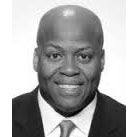Project Play: Kid-Focused, Coach-Driven: What Training is Needed?
Building on our roundtable in September, which focused on the prospects of anchoring our disjointed sports system in the principles of age-appropriate play, this convening will consider a framework for coach training that will help organizations across the US deliver early positive experiences. It is the second of four roundtables in the coming months that will consider the question of how to grow the quality and quantity of community coaches, given the role coaches play in getting and keeping kids engaged in sports.
Below, Tom Farrey, director of the Aspen Institute Sports & Society Program, explains the importance of youth coaches:
Coach.
It’s one of the most reverential terms in our society, right up there with, well, “reverend.” As with ministers, sometimes we just drop the first name when describing those who occupy this position — it’s Coach Wooden, Coach K, Coach Summitt. At the youth level, especially, the honorific confers authority, invokes esteem and implies wisdom, or at least the knowledge to organize energies in a manner that produces a public good, which we assume to include healthy children.
But who’s coaching the coaches? Who is ensuing they have the tools to deliver early positive experiences?
Information presented during our November 20th program featured original survey data revealing how few of our 6.5 million youth coaches are trained in key competencies. Less than one in five say they have been taught effective motivational techniques with children, and less than one in three say they have been trained in skills or tactics in the primary sport they coach. These are “at best” numbers, surely including a few dads who once heard Nick Saban share his winning secrets at a clinic and assume that qualifies.
Training works when we understand the psychology of a child. More than two decades ago, University of Washington researcher Frank Smoll established that only 5 percent of kids who played for trained coaches quit the sport the next year; the attrition rate was 26 percent under non-trained coaches.
Since grade schools stopped sponsoring organized sports in the 1930s, our system has been dominated by volunteers, most of them well-meaning, most of them winging it. All play a central role in the health of the nation, as a child who becomes inactive will later incur higher medical costs and could die five years earlier than their peers.
In September, we began the process of reimagining youth coaching in the US by considering the prospects of anchoring our disjointed sport system in the principles of age-appropriate play. The US Olympic Committee and a number of national sport governing bodies have created a task force that is acting on this idea, building a template that can help sport organizers move away from a culture of what I would call “careless competition,” in which a reflexive instinct to win games trumps the needs of the child, and his or her athletic development. Age six is not the same as age 16 with kids, as Designed to Move observes.
Today’s roundtable takes the next step, and asks: what does good youth coaching look like? What are the practical elements we need every adult — who works with children between the critical ages of six and 14 — to be trained in? And can we create alignment around a simple, scalable, affordable (perhaps free) platform that has the endorsement of organizations that parents everywhere know and trust? The challenges here are many, matched only by the potential benefits. By shifting the culture to an expectation of training at the lowest level, all boats — and children — may find themselves lifted.
The Aspen Institute’s Project Play convened more than 30 thought leaders in Colorado Springs, Colorado, to help develop a plan to grow the quality and quantity of youth coaches nationally. In anticipation of the latest in a series of events that aim to re-imagine youth sports in the US, Robinson, King, Aney, Fitzgerald Mosley, and Hill offered their personal stories about the coaches who inspired them not just to compete, but to sustain a long, healthy relationship with sports.
Click below to read their blog posts in the Institute’s latest series on the Huffington Post Aspen Institute channel:
 “We Need More Trained Coaches — and More Fraser Robinsons” by Craig Robinson, Head Boys’ Basketball Coach, Oregon State University
“We Need More Trained Coaches — and More Fraser Robinsons” by Craig Robinson, Head Boys’ Basketball Coach, Oregon State University
Let’s face it, most kids aren’t going to play sports at the D-I college level, so it’s important that they come away from their experience where they want to be in sports and be active for the rest of their lives. It’s about their psychological, emotional, social and physical welfare. Read More…
 “Coaching for Life” by Billie Jean King, Member of the President’s Council on Fitness, Sports & Nutrition and Founder of the Women’s Sports Foundation
“Coaching for Life” by Billie Jean King, Member of the President’s Council on Fitness, Sports & Nutrition and Founder of the Women’s Sports Foundation
Long before I competed at Wimbledon, won a Grand Slam, or stepped on the same court as Bobby Riggs, I was a fifth-grade student in Long Beach, Calif., holding a tennis racquet for the very first time. Read More…
 “My Sports Influences” by Jessica Aney, 2010 Sports Illustrated ‘SportsKid of the Year’
“My Sports Influences” by Jessica Aney, 2010 Sports Illustrated ‘SportsKid of the Year’
While many coaches have played a huge role in my development, none have taught me as much as my dad. My dad has coached me in hockey and tennis for my whole life. As a serious athlete, it is crucial to have a parent or coach that cares about you and understands where you want to go with your sports. My dreams in sports are mine, not his, and he has always understood this. Read More…
 “Winning Gold Medals on The Playing Field of Life” by Benita Fitzgerald Mosley, Olympic Gold Medalist and Chief of Organizational Excellence, United States Olympic Committee
“Winning Gold Medals on The Playing Field of Life” by Benita Fitzgerald Mosley, Olympic Gold Medalist and Chief of Organizational Excellence, United States Olympic Committee
Quality coaching is a critical factor in determining whether an athlete will be successful at the elite level. Yet, sports organizations often do not invest adequate resources in developing coaches. Read More…
 “Early Positive Experiences = Athletes for Life” by Elliott J. Hill, President of Geographies & Sales for Nike
“Early Positive Experiences = Athletes for Life” by Elliott J. Hill, President of Geographies & Sales for Nike
Sure I played football, baseball and basketball from an early age — 7 or 8 — like most kids where I lived. It taught me a lot about sport, commitment and that internal drive. But those lessons paled in comparison to what I got from those countless hours spent playing at the Dottie Jordan recreation center, and the intangible gifts from my coach Mr. Armistead, even if we didn’t realize how much he was investing in our lives at the time. Read More…
Building on our roundtable in September, which focused on the prospects of anchoring our disjointed sports system in the principles of age-appropriate play, this convening will consider a framework for coach training that will help organizations across the US deliver early positive experiences. It is the second of four roundtables in the coming months that will consider the question of how to grow the quality and quantity of community coaches, given the role coaches play in getting and keeping kids engaged in sports.